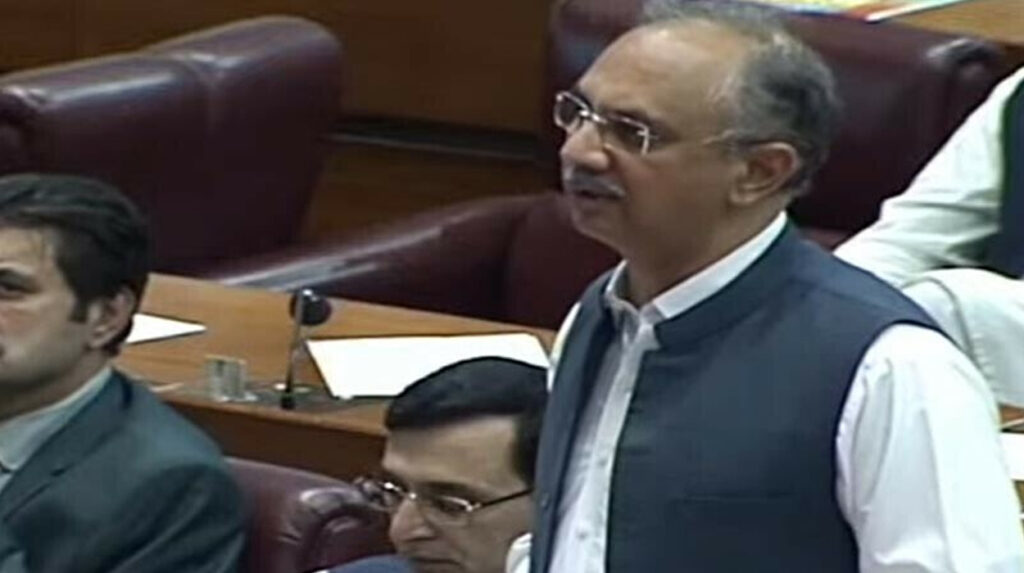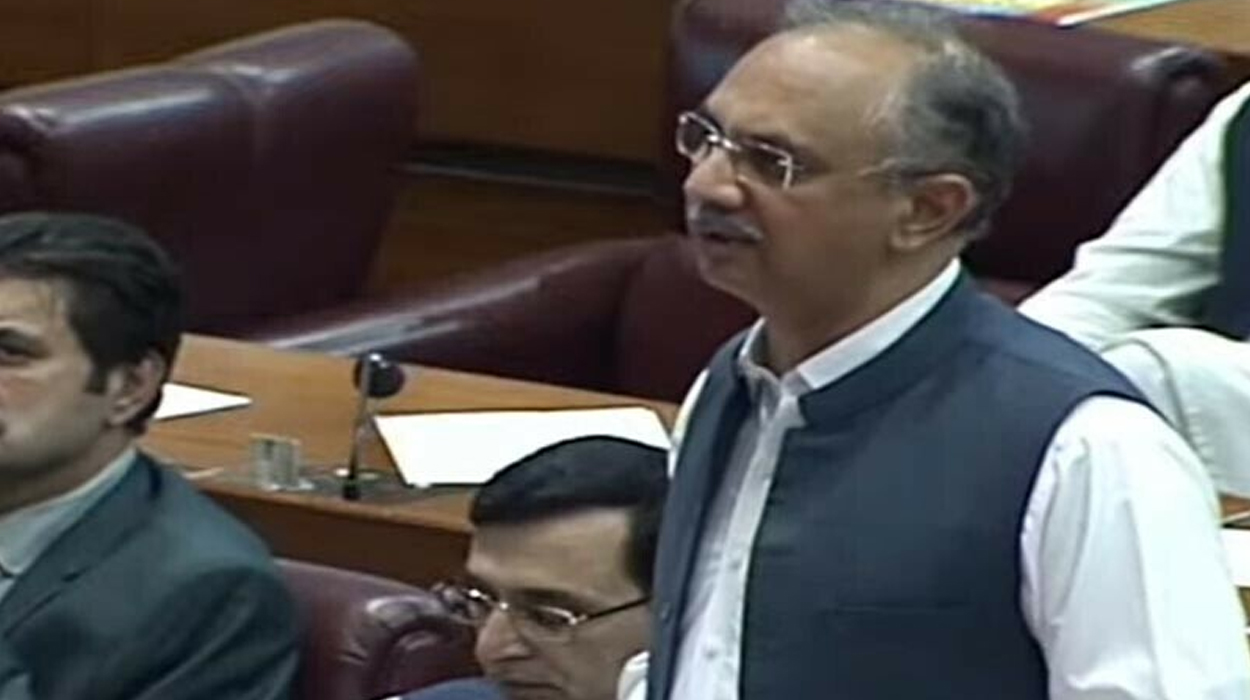
ISLAMABAD: Amidst fervent deliberations within the National Assembly, Omar Ayub, the distinguished Opposition Leader, delivered a resolute speech, invoking constitutional precepts and advocating for the restoration of security agencies to their prescribed constitutional confines.
In a fervid oration this Monday, Omar Ayub, the distinguished Opposition Leader in the National Assembly, referenced constitutional articles and urged the recalibration of security agencies to their designated parameters.
Expressing disapproval towards the recent press briefing conducted by the Director General of the Inter-Services Public Relations (ISPR), Ayub underscored, “Security agencies are not sanctioned to engage in political affairs as per constitutional edicts,” emphatically emphasizing their role as “instruments of the state, not the state itself.”
Quoting Article 7 of the Constitution, Ayub elucidated that the delineation therein excluded security apparatuses from the definition of the state, elucidating, “The state encompasses the federal government, the national and provincial assemblies […] and entities vested with tax collection duties.” Ayub accentuated, “These agencies serve the state; they do not constitute the state.”
Drawing from Article 203 — pertaining to the oath of an officer — Ayub characterized the DG ISPR’s press conference as “an encroachment into the political domain,” a realm reserved solely for elected representatives and political entities.
“Security institutions are precluded from political entanglements as mandated by the Constitution. Ergo, this press briefing should have been averted,” asserted Ayub.
He further referenced Article 5, which emphasizes loyalty to the state. “This epitomizes the fundamental obligation of every Pakistani citizen,” Ayub contended, affirming the obligatory nature of Article 5 upon all Pakistanis, including military personnel.
“This delineates a threshold that Pakistanis must not transgress,” Ayub emphasized.
Subsequently, the opposition leader recited Article 6 — pertaining to high treason — which stipulates that any citizen who “abolishes, undermines, or suspends […] the Constitution through coercion” commits a grave offense.
“Every institution is circumscribed by constitutional boundaries,” he reiterated. “Deviation from these boundaries impedes the nation’s advancement.”
Quoting Article 19, which enshrines freedom of speech, Ayub decried censorship in the media and the prohibition of certain expressions, remarking, “This discourse may be withheld from dissemination.”
National Assembly Speaker Ayaz Sadiq reassured Ayub of its dissemination.
Demanding an impartial judicial commission to probe the events of May 9, 2023, Ayub insisted on the presentation of CCTV footage depicting the riots as a pivotal prerequisite.
“The imperative is the pursuit of truth,” he affirmed. “We advocate adherence to the law and the Constitution.”
Citing the ISPR’s press conference, wherein the DG advocated for the disclosure of prior inquiry reports, Ayub called for the public release of reports pertaining to the Ojhri Camp Disaster, the Hamoodur Rehman Commission, the Army Public School Inquiry, and the Abbottabad Commission.
Ayub also referenced a letter dispatched to the Supreme Judicial Council by six Islamabad High Court Judges, alleging interference by security agencies in judicial matters.
Employing the letter as evidence of overstepping boundaries, Ayub elucidated, “The judges delineated instances of security agency interference within their domain and that of their subordinates. Incendiary devices were hurled at their residences, while intelligence operatives unlawfully trespassed into judges’ homes, subjecting individuals to harassment.”
Ayub asserted that all cases allegedly tampered with by intelligence agencies pertained to the Pakistan Tehreek-e-Insaf (PTI), including charges against party founder Imran Khan and his spouse Bushra Bibi, as well as senior party officials, members, and supporters.
Reiterating the call for an impartial judicial commission on May 9, Ayub maintained that “May 9 served as a pretext, with Imran Khan as the prime target,” denouncing the government’s stance on the events of May 9 as “assigning blame to the victims.”
The Defense Minister’s remarks sparked tumultuous reactions. Addressing the session subsequently, Khawaja Asif remarked, “The remains of the spurious Field Marshal Ayub Khan, who instituted the inaugural martial law in the nation, should be exhumed and subjected to capital punishment as per Article 6. Initiate proceedings from this juncture, pinpointing the night of constitutional transgression and dissolution of the assembly, thereby obstructing the passage of the no-confidence motion.”
Asif endorsed the opposition leader’s demands, albeit advocating for their equitable application across all individuals.
The minister reiterated the imperative of commencing Article 6 proceedings, garnering agreement from parliamentary members, albeit proposing the initiation with the former military dictator.
The minister’s pronouncements incited a frenzy among opposition ranks, prompting the NA speaker to call for decorum and implore lawmakers to permit Asif to conclude his discourse.
